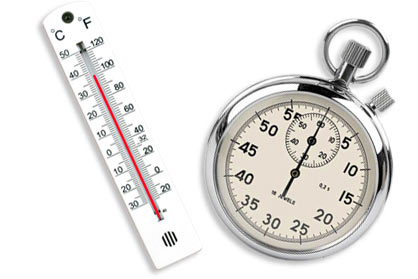Menu
Temporary Food Facilities Training - Time / Temperature
Time/Temperature Principle
The time/temperature principle describes the relationship between the growth of bacteria that are in food and the length of time food remains in the Danger Zone.
Many bacteria grow best in the same range of temperatures that we find comfortable.
Bacteria kept below 45°F or above 135°F will not necessarily die, but their growth will be slowed significantly.
Avoid time/temperature abuse by ensuring the food is kept out of the Danger Zone.
Temperature/Time Abuse Is The #1 Cause Of Foodborne Illness
If food has been sitting out at room temperature for up to 2 hours, refrigerate it or reheat it to 165° immediately. After food has been sitting for 4 hours or longer, there could be a high number of bacteria, so throw it out.
Keep Food Safe By:
- Keep cold foods at 45°F or below until it is needed for preparation or serving.
- Keep hot foods at 135°F or higher until served
- Reheat cooked foods to 165°F or higher.


